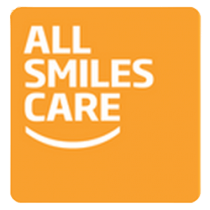In recent years, corporate dental practices have become more common. This shift toward corporate dentistry might mean increased options for potential patients to choose from, but what does it mean for the services provided and their costs? While there’s no clear winner in the debate between corporate dentistry vs private practice, there are several key pros and cons to consider.
We take a look at the advantages and disadvantages of both types of dental practices below to help you choose what type of dentistry is right for you. We’ll also answer questions such as:
- What is a corporate dental practice?
- Is it better to go to a private dentist?
- Are private dentists more expensive?
What are Corporate Dental Offices?
As the name suggests, corporate dentistry clinics are larger-scale dental practices with multiple locations as part of a chain or under the management of an organization. Bigger practices come with their share of advantages and disadvantages, such as more resources but a less-personalized level of care. Deciding whether corporate or private dentistry is right for you depends on your needs and resources, so keep reading to learn more.
Advantages of Corporate Dental Offices
There are several advantages to going with a corporate dental office. The most common distinguishing factor between corporate and private dental offices from a patient’s perspective will be cost of services. Corporate dental centers can offer economically friendlier price ranges and often accommodate a broader range of insurance policies.
Another benefit is that, whether you live in a big city or in a more rural area, corporate offices are usually going to have more locations for you to choose from. With a larger pool of staff, this also means greater appointment availability in the case of an emergency. Plus, some corporate dental practices will have more resources to provide complicated surgical procedures not available through local dentistry.
Disadvantages of Corporate Dental Offices
While corporate dental centers often provide more affordable care and can be more accommodating, their operational procedures can sometimes feel more impersonal. This isn’t the fault of practitioners themselves, but stems from the nature of a large-scale service provider overseeing hundreds of patients and needing to shuffle them through the door in a timely manner.
Despite corporate efficiency, it can be harder for patients to address questions or concerns and to receive that level of personal care common to private dentistry. As such, corporate dental offices won’t be ideally suited for people with anxieties around going to the dentist or for small children new to getting their teeth cleaned. When going to a busy corporate office, patients also won’t always see the same practitioners at each visit. This can make expectations harder to manage and make you feel like another name on a spreadsheet.
What are Private Dental Practices?
Private dental practices are owned and operated by a dentist who provides care for the office’s patients. You may be wondering if it’s better to use corporate dentistry vs private practice and what some of the pros and cons to each include. Weighing the advantages and disadvantages to a private dental practice depends partly on what you’re looking for by way of experience and type of service.
Advantages of Private Dental Practices
At a private dental office, it’s much easier to get personalized and patient-specific care. It’s also easier to address particular needs, apprehensions, and questions that wouldn’t be possible to discuss at a corporate center. This friendlier atmosphere goes a long way for patient comfort and patient-doctor trust. In turn, making a difficult decision becomes clearer when in the presence of professionals whose expertise you’re confident in. As mentioned above, private family dentistry practices will also be well-suited for small children new to getting their teeth cleaned.
On the operations end, a smaller, tightly knit office means closer communication between hygienists, dentists, and other staff. Teams with stronger communication are able to provide better care to patients and give recommendations otherwise not as possible.
Disadvantages of Private Dental Practices
The most common disadvantage to private or local dental practices can often be cost. Routine appointments and surgeries may have a higher cost, though this does depend on your insurance. If you’re insured by a smaller insurance agency, there’s a chance your visit won’t be covered or may have to pay more out of pocket.
Since private dental practices are confined to a single location or to only a handful of locations, patients sometimes face longer commutes to their appointments. It can also be harder to schedule an appointment due to practitioner availability. Depending on the office, certain private dental services may differ or not be available at a local dental practice, such as complicated oral or maxillofacial surgery. In that case, you would likely be referred to a specialist or other office to receive treatment.
Patients: Choose the Type of Dental Practice that Meets Your Needs
It’s not always a clear choice when considering a corporate dentistry vs private practice. Objectively, each type is capable of providing excellent services for people of all ages. When weighing your options you’ll want to think about the factors that are important to you. In addition, make sure that any dental offices you’re considering have the proper certifications, are in a fairly convenient and good location, and have lots of helpful reviews.
For more helpful information in making your decision, explore All Smiles Care’s services and learn more about our office. If you have any questions about appointments or what we do, reach out to us and we’ll be in touch soon.
Dentists: Decide Which Career Path is Right for You
When deciding between a career in corporate dentistry or private practice, there are several factors to consider that could influence your decision. Here’s a breakdown of the key aspects to consider:
Benefits and Compensation
Corporate practices often offer more comprehensive benefits such as health insurance, retirement plans, and paid vacation, which can be more attractive to those looking for financial security and benefits stability. In contrast, while private practices may offer similar benefits, the range and consistency can vary greatly from one practice to another.
Relationships and Patient Care
In private practice, dentists typically build closer relationships with their patients and have greater autonomy in decision-making regarding patient care, allowing for more personalized treatment plans. Conversely, corporate settings usually provide structured protocols and could potentially limit the flexibility in patient care but ensure a consistent flow of patients due to strong marketing efforts.
Work Environment and Coworker Relations
Corporate dentistry environments tend to have more structured environments with a larger number of staff, which can lead to less stress regarding administrative responsibilities but may also result in feeling like just another number in the system. Private practice allows for more direct involvement in the practice’s operations, fostering closer relationships with staff but can also mean more responsibility and potential stress.
Marketing and Patient Acquisition
Marketing efforts in corporate practices are generally more robust, benefiting from larger budgets and centralized marketing teams. This can lead to a steady influx of new patients but may also mean less personalized marketing approaches. Private practitioners often have to manage their marketing efforts directly, allowing for targeted and community-focused strategies but at the cost of greater personal or financial investment in marketing activities.
Career Growth and Development
Private practices typically provide opportunities for dentists to grow by building their reputation and potentially expanding their practices. This path can lead to significant personal and financial rewards but comes with higher risks and demands. Corporate practices may offer more structured pathways for advancement and continuing education, which can be appealing for those seeking steady career progression without the entrepreneurial risks associated with private practice.
Long-term Stability and Turnover Trends
Turnover can be higher in corporate settings due to less personal investment in the practice, whereas private practice might see longer tenure due to the deep personal and financial commitment involved in running a practice.
Each career path offers distinct advantages and challenges. It’s essential to weigh these factors based on personal career goals, lifestyle preferences, and professional aspirations. Whether you value independence, patient relationships, stability, or growth opportunities, choosing the right environment is crucial for a fulfilling dental career.


